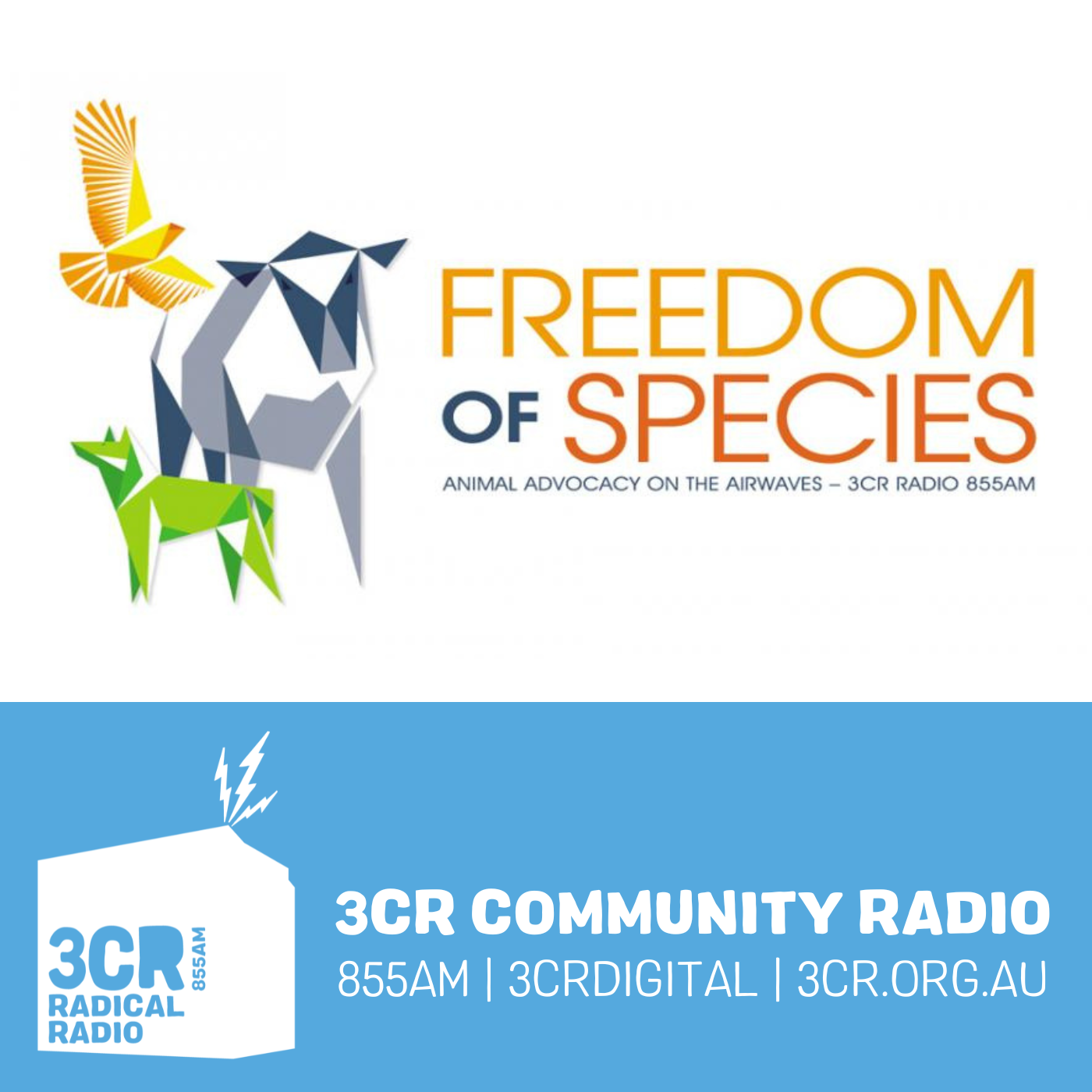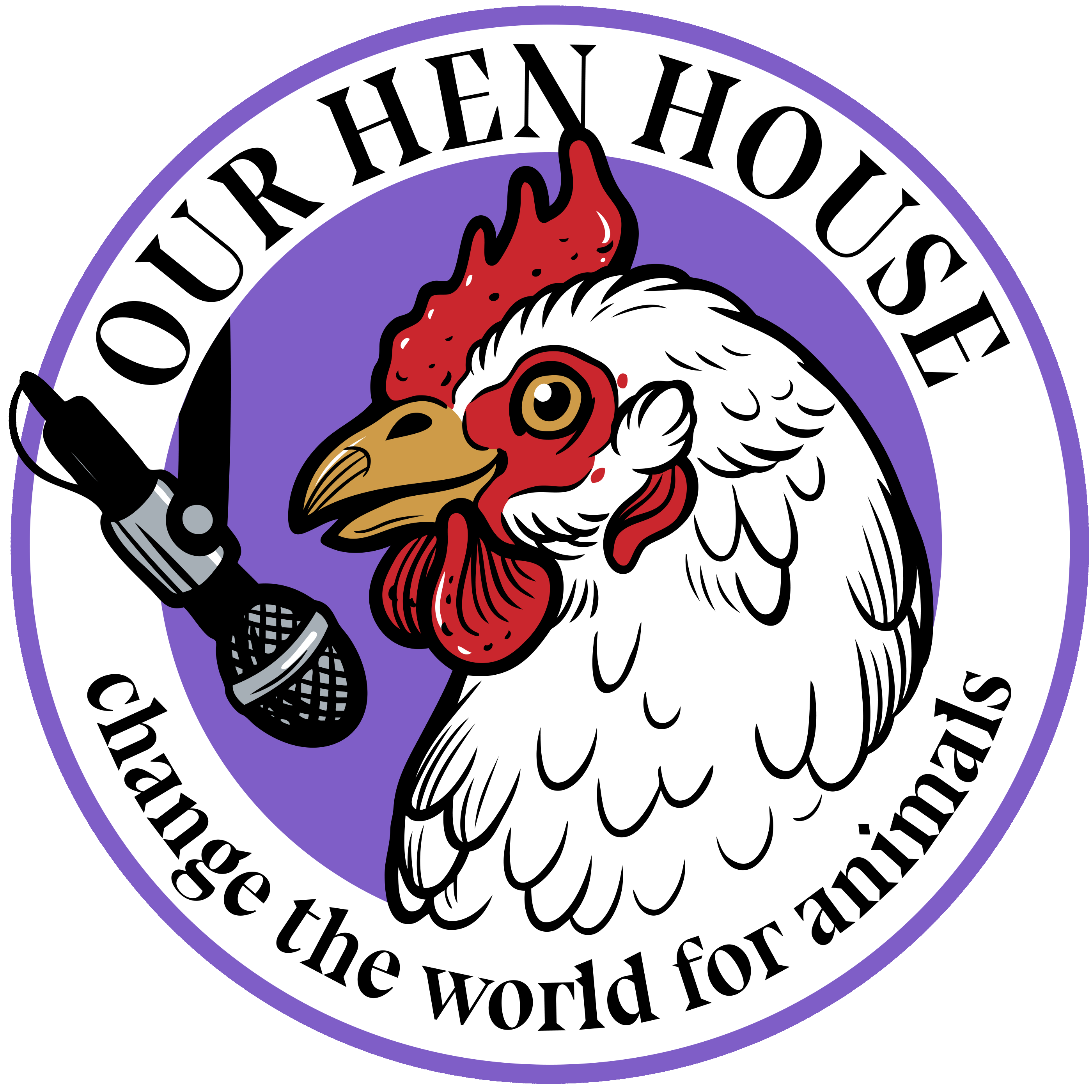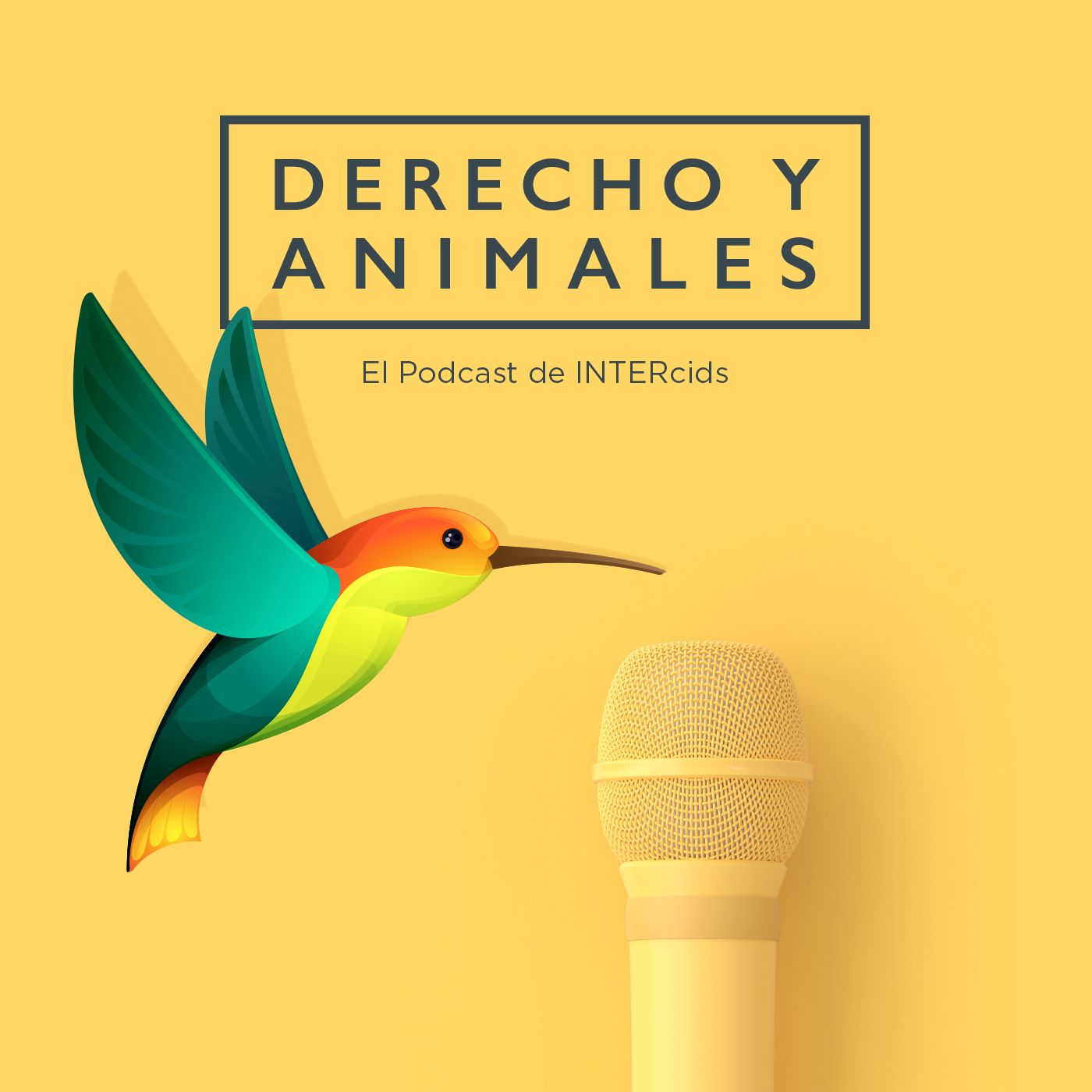
The Animal Turn
Animals are increasingly at the forefront of research questions – Not as shadows to human stories, or as beings we want to understand biologically, or for purely our benefit – but as beings who have histories, stories, and geographies of their own. Each season is set around themes with each episode unpacking a particular animal turn concept and its significance therein. Join Claudia Hirtenfelder as she delves into some of the most important ideas emerging out of this recent turn in scholarship, thinking, and being.
The Animal Turn
S5E8: Community Led Conservation with Gladys Kalema-Zikusoka
Use Left/Right to seek, Home/End to jump to start or end. Hold shift to jump forward or backward.
Claudia talks to Gladys Kalema-Zikusoka about community led conservation. They discuss her work with gorillas in Bwindi National Park and how helping them involves working together with the community through health initiatives, efforts to create better livelihoods, and paying attention to food security.
Date Recorded: 23 November 2022
Dr. Gladys Kalema-Zikusoka is Founder and CEO of Conservation Through Public Health (CTPH), an award-winning NGO that protects endangered gorillas and other wildlife through One Health approaches. After graduating from the Royal Veterinary College, University of London, in 1996, she established Uganda Wildlife Authority’s first veterinary department. In 2000, she did a Zoological Medicine Residency and Master in Specialized Veterinary Medicine at North Carolina Zoological Park and North Carolina State University, where masters research on disease at the human/wildlife/livestock interface led her to found CTPH in 2003. In 2015,stogether with her husband Lawrence Zikusoka, she founded Gorilla Conservation Coffee to support farmers living around habitats where gorillas are found. She has won many awards for her work. In 2021 she was recognised by Avance Media among 100 most influential women in Africa and won the UNEP Champions of the Earth Award in the category of Science and Innovation. She is the winner of the 2022 Edinburgh Medal for her work in Planetary health and 2022 Tällberg-SNF-Eliasson Global Leadership Prize. Gladys is also on the leadership council of Women for the Environment in Africa, Chairperson of the Africa Chapter of the Explorers Club, Vice President of the African Primatological Society, and a member of the World Health Organisation Special Advisory Group for the Origin of Novel Pathogens (WHO SAGO).
Claudia (Towne) Hirtenfelder is the founder and host of The Animal Turn. She is a PhD Candidate in Geography and Planning at Queen’s University and is currently undertaking her own research project looking at the geographical and historical relationships between animals (specifically cows) and cities. She was awarded the AASA Award for Popular Communication for her work on the podcast. Contact Claudia via email (info@theanimalturnpodcast.com) or follow her on Twitter (@ClaudiaFTowne).
Featured:
A.P.P.L.EAnimals in Politics, Law, and Ethics researches how we live in interspecies societies and polities.
Biosecurities Research Collective
The Biosecurities and Urban Governance Research brings together scholars interested in biosecurity.
iROAR Network
iROAR brings together podcasts that aim is to make the world a better place for animals.
Disclaimer: This post contains affiliate links. If you make a purchase, I may receive a commission at no extra cost to you.
The Animal Turn is hosted and produced by Claudia Hirtenfelder and is part of the iROAR Network. Learn more on our website.
- Leave a Review on Podchaser
- Check out The Animal Turn Merch.
- Support us on Patreon, Buy Me a Coffee, and Buzzsprout.
00:00 - Introduction
03:11 – Welcome
- Edinburgh lecture and award
- Grew up with pets and set up a club at secondary school
- Worked with captive chimps during vet school, worked with mountain gorillas in Bwindi and haven’t left since 1994.
- Conservationists who believed in survival of the fittest,
- First vet for the Uganda Wildlife authority, exciting and daunting
- Human beings have intervened so much with wildlife and sometimes you have to intervene otherwise it can lead to extinction
06:56 – First Veterinarian for Ugandan Wildlife Authority and Gorilla Health
- Tourists get close to gorillas, and they can spread respiratory diseases
- Hired to look after gorillas but also worked with all the other species
- Significant investment on behalf of the Ugandan government
- You could get as close as 5 meters, so the common flu was a challenge
- “We share over 98% of genetic material…so we can easily make each other sick,” Gladys
- Gorillas lose their fear of people so they range in places they wouldn’t range before
- Gorillas struggled with scabies
- Intestinal parasites, cholera, etc are all problems “whatever we can get, they can get,” Gladys
- During COVID the awareness of these challenges were heightened, share the same proteins which means it will make old world primates and Gorillas sick
12:25 – Understanding threats to gorillas
- 4 gorilla sub-species in the world and they are all found in Africa: Mountain Gorillas (Uganda, Rwanda, DRC), the Eastern Lowland Gorillas (DRC), Western Lowland Gorillas (9 countries in Africa), Cross River Gorillas (Nigeria and Cameron) – All are critically endangered except the mountain gorillas
- Over the past 25 years mountain gorilla populations have doubled to just over 1000 but they are the only sub-species that show an upward trend
- Biggest threats are disease, poaching, habitat loss due to high human population growth, bushmeat trade
- Tourism is helping conservation efforts, but threats are very locally specific
16:52 – Focusing on the community relations and livelihoods
- Have to lead the efforts to help the public health of communities, concerns about open defaecation and pick up cholera or typhoid
- Met over 1000 people in 8 villages as a onehealth team and discussed all the issues
- Community came up with practical and varied solutions, and one of them was having health services that were closer to them.
- Continued sessions to improve health and hygiene
- Group of community members trained to herd the gorillas
- Focused on livelihoods and wanted to give farmers good price for their coffee – not everyone is part of the tourism industry
- Working in six parishes where there is a lot of gorilla-human conflict
- The model they employ are being used by other NGOs
- Paying attention to humans who live on the edge and that is different to the challenges people in cities are facing
23:17 – Gorilla Conservation Coffee and Financial Security
- You can buy coffee to support the work being done at Bwindi
- Gorilla Conservation Coffee: https://gorillaconservationcoffee.org/
- Even if you can’t visit the gorillas, you can support them by buying coffee
- When people rely too much on tourism things can go wrong – before the pandemic things were going well and when the pandemic happened no one could travel
- Money is helping gorillas and employment opportunities
- Some of the jobs include lab work (which also involves doing fecal testing)
28:03 – Ready to Grow and Food Security
- Ready to Grow helps to get food to the most vulnerable
- Rafikki was killed by bushmeat hunter and he has been put in jail – but he has children and they are hungry.
- People are poaching because they are hungry, notable increase during the pandemic
- Providing seedlings to the poorest of the poor
- Important to a OneHealth approach – bushmeat can make people sick. Uganda is in the most of an Ebola outbreak
- COVID is just one among many different disease threats
31:06 – OneHealth
- OneHealth can be used as a greenwashing device in which specific people and animals get lost in conversation
- It is a holistic approach that is the best way to address the challenges we are facing
- Diseases jump between humans and animals
- The issue of OneHealth is that animals are not being given a lot of attention – it is easier to get resources to diseases that are jumping to humans, not the other way around (“reverse zoonoses”)
- The exception are animals who have big economic value
- Species that are not charismatic also need to be given as much attention
- Need to pay attention to flows of disease
- Typhoid primarily affects humans and most animals are not impacted by it
- Gorillas can also get typhoid
- Older gorillas suffer more and it is easier for humans to go to the doctor
- Philosophy paper about vets: Considerations for an ethic of One Health: Towards a socially responsible zoonotic disease control
- The idea that vets need to speak on behalf of animals, for Onehealth to really work you need vets in the room who are talking on behalf of the animals and not industry
36:40 – Habitat loss and developing trust
- Incline in Mountain Gorilla populations but there are questions of habitat loss
- “The animals exist in space and they need somewhere to go,” Claudia Hirtenfelder
- Do health work and conservation work together
- Promote tree planting so that people don’t go into the forest for firewood
- “Health is a good entry point for talking about complicated issues,” Gladys
- Communities are gaining more trust
- As the number of Mountain Gorillas increase there is not much space for them to go so the question is how you secure more land for the gorillas.
- Asking people to set aside land for the Mountain Gorillas
- “It is a holistic approach but you really need to show people that their needs are as important as the animals” Gladys
- Trust takes time to develop
42:15 – Spending time with and learning from gorillas
- No average day - There is a lot of administration and fund raising
- Spend maybe 20% of time with gorillas
- Have incredible family planning strategies that we can learn from gorillas and chimpanzees
- Favourite gorilla is Kanyoni who grew up to be a bug and health silverback,
- He died in 2017 after getting an infection when he fell out of a tree, tribute on Facebook
- The coffee is named after Kanyoni which keeps his legacy going
- Been working with the gorillas for over 25 years and will probably work with them for the rest of her life
51:26 – Conflict
- Animals struggle in times of conflict and war
- Documentary about Virunga National Park in the DRC and the challenges that raises for communities and gorillas
- Community led conservation makes it possible to do conservation even in conflict
- Under Idi Amin many animals went extinct, there were no more predators and Gladys wanted to bring back the wildlife
- Gladys’ dad killed by Idi Amin
- Mountain Gorillas were the biggest source of hope after they were discovered in the late 80s, that tourism put Uganda on the map as one of the top tourist destinations in Africa
- The legacy of conflict and instability which impacts people and animals in different ways
56:59 – Book: Walking with Gorillas
- Talks about Gladys’ journey with conservation, how she became the first wildlife vet, bringing wildlife back to Uganda, and setting up Conservation with Public Health
- Women in leadership is an important part of the story too, there were no women in conservation when Gladys started out but now women engaged in conservation has gone up
- Talk about sustaining conservation through interventions in tourism, coffee and how to engage with children
- Jane Goodall wrote the forward, Jane Goodall Institute in Uganda
- Inspired Diane Fossey who made everyone understand they are gentle giants
- Talk a bit about parenting, her son wrote “Zookeeper for a week”, a children’s book with lovely pictures
- Mom wrote a book about her life as a politician, “My life is but a weaving”
- Lawrence Zikusoka, Glady’s husband, has been an important pat of the journey and “the right person” to help her run with her dream.
01:02:00 – Quote
- “Follow your dreams and the rest will follow,”
01:03:30 – Get in touch
- Conservation through public health
- Gorilla Conservation Coffee
- Interact with the foundation and contact if you are interested in opportunities at the foundation
Podcasts we love
Check out these other fine podcasts recommended by us, not an algorithm.

The Animal Highlight
Claudia Hirtenfelder
Knowing Animals
Josh Milburn
Species Unite
Species Unite
The Deal with Animals with Marika S. Bell
Marika S. Bell
The Other Animals
Laurent Levy
Beyond Species
Beyond Species
The Anthrozoology Podcast
Anthrozoology Podcast
Freedom of Species
The Freedom of Species Team
Our Hen House: Vegan & Animal Rights Movement | Stories from the Frontlines of Animal Liberation
Jasmin Singer and Mariann Sullivan
Derecho y Animales
Derecho y Animales
Storytelling Animals
Dayton Martindale
Species
mackenmurphy.org
Animal Law Matters
K & R Animal Law
The Humanimal Connection
Humanimal Trust
The Animal That Changed You
Katya Lidsky
Think Like a Vegan
Emilia Leese
The Shifting Lens: Viewing the Animal Experience
Tiamat Warda Rebecca Madrid
The Salmon People
Canada's National Observer
Comme un poisson dans l'eau
Victor Duran-Le Peuch


